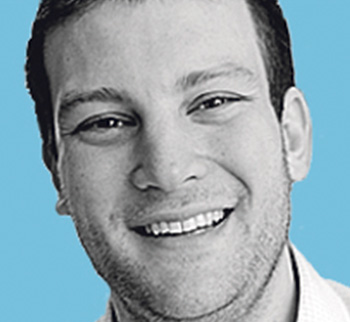Throughout the weeks of Operation Protective Edge, I have been glued to my computer screen, pouring over articles, tweets, blogs and op-eds. I’d done this before. During previous wars, I had my finger on the refresh button of the New York Times, Haaretz, Jerusalem Post, and the National Post. I listened avidly to CBC’s hourly radio news, and watched streaming clips on CNN. The need for instant information is overwhelming.
While this summer I still read those sites, tuned in to those broadcasts, and added the Times of Israel to my bookmarks, it was Facebook that really occupied my summer.
Before the war, Facebook had been a place to check up on friends. It was filled with pictures of the food they ate, the messes their kids made, and the places they vacationed. These benign posts were occasionally interspersed with links to interesting articles or invitations to play candy crush.
During the war in Gaza, my Facebook timeline turned into a 24/7 news feed. Friends in Israel shared their personal experiences, selfies in bombshelters and updates on how their lives were impacted. Friends around the world shared links to articles they were reading, videos depicting the valour of the IDF, and infographics explaining the situation.
It was an endless torrent of Israel news and advocacy. By the third week of the operation I yearned for the return of cute baby pictures.
Facebook is a powerful media. It’s instant, interactive and multimedia. The average young adult spends more time on Facebook than they do emailing, shopping or commuting. When the news from Israel passes through Facebook, it meets young people where they are and likely penetrates a broader audience.
At the same time, turning to Facebook for our news should raise alarm bells because Facebook encourages isolation of thought.
News feeds are populated by articles shared by Facebook friends. A week into the war I realized that the breadth of opinion I was read was narrowing. In the past, I turned to a wide range of news sources – some I agreed with and others that infuriated me. I was reading a variety of positions and making sense of them for myself. With Facebook serving as the curator, I was only reading articles that resonated with my friends’ political views.
The narrowing of opinion pushes us dangerously toward confirmation bias. It reinforces our existing opinions and mitigates against new ways of thinking, which are essential in determining our own positions.
A second concern about our reliance on Facebook relates to a different form of isolation – an isolation of activism.
Throughout the summer I was amazed by the spectrum of Facebook friends who posted about Israel. Friends who seemingly had little connection to the organized Jewish community posted alongside those who are avid advocates for the State of Israel. Outside of their strength on Facebook, however, I heard little from my peers. Our community’s rallies, which saw thousands attend, didn’t draw the strength of young adults; letters to the editor and missions to Israel fell flat amongst my peers.
I am concerned that some are so active on Facebook that they disengage from other forms of advocacy. While Facebook activism is an important element of 21st century advocacy, taken alone, it is insufficient. Facebook should be seen as a means towards a greater ends of activism and affiliation.
As a fragile calm persisted over Israel and Gaza, it became easy for the Facebook user to turn to the next timeline-occupying trend. If we allow our Facbeook news feed to determine our agenda, however, we will float from Israel to the ALS icebucket challenge to the next fad, as if each were the latest music hit rather than serious issues that demand our attention and activism. If we are truly to take on the mantle of the Facebook Generation, then we must recognize both the profound power and limitations of the platform.
